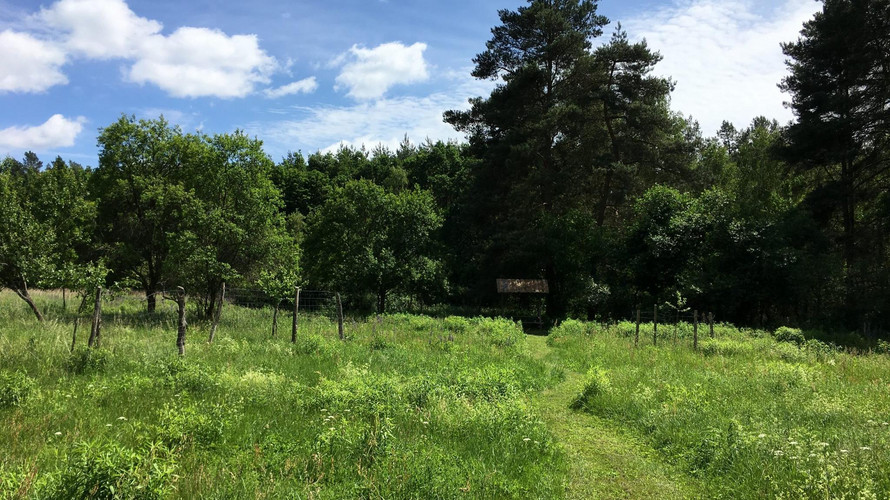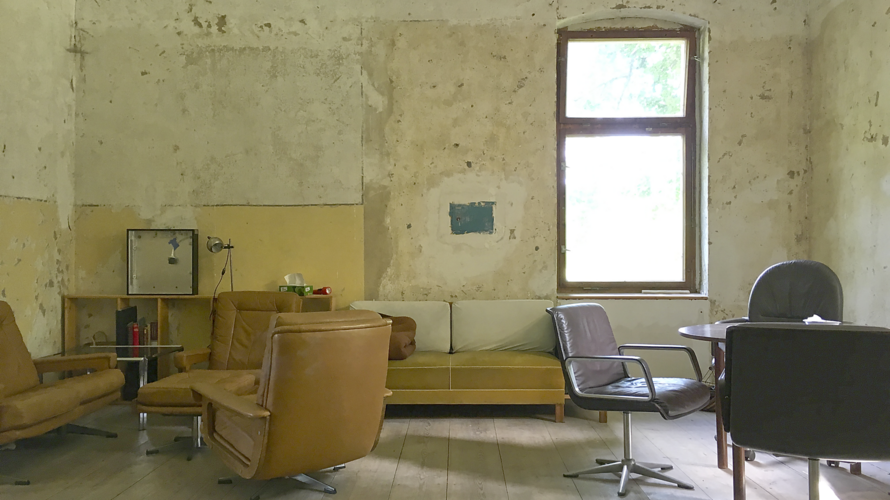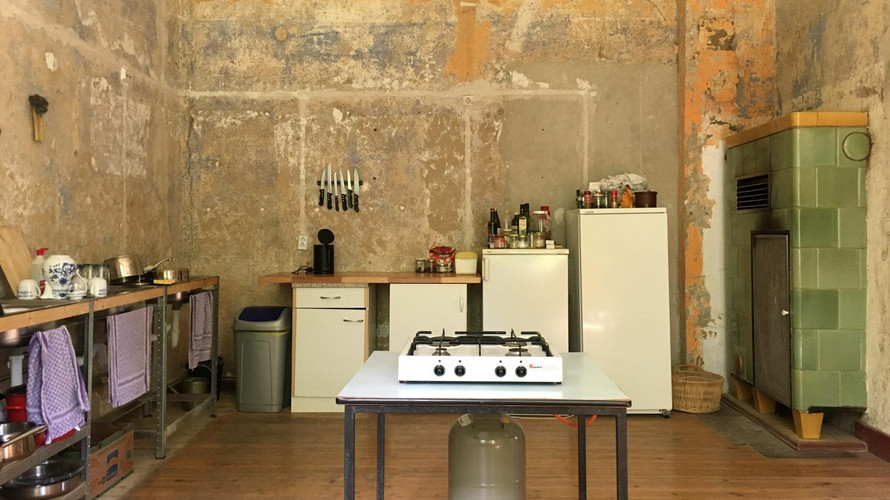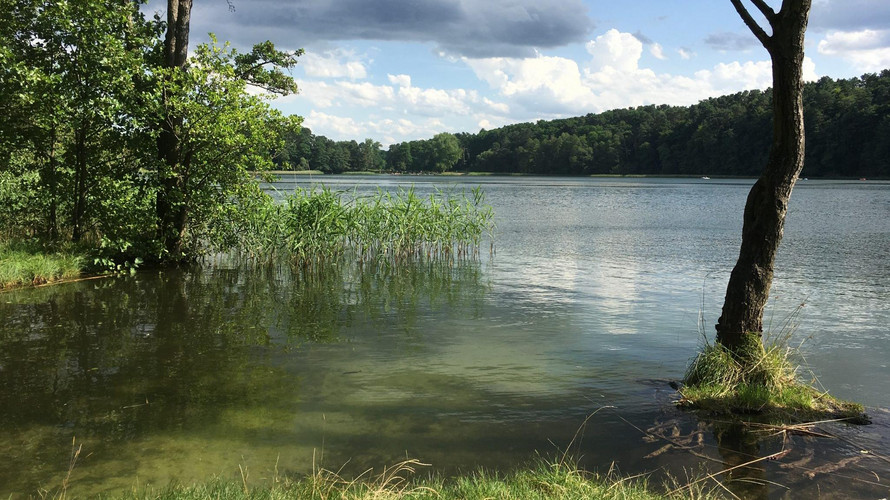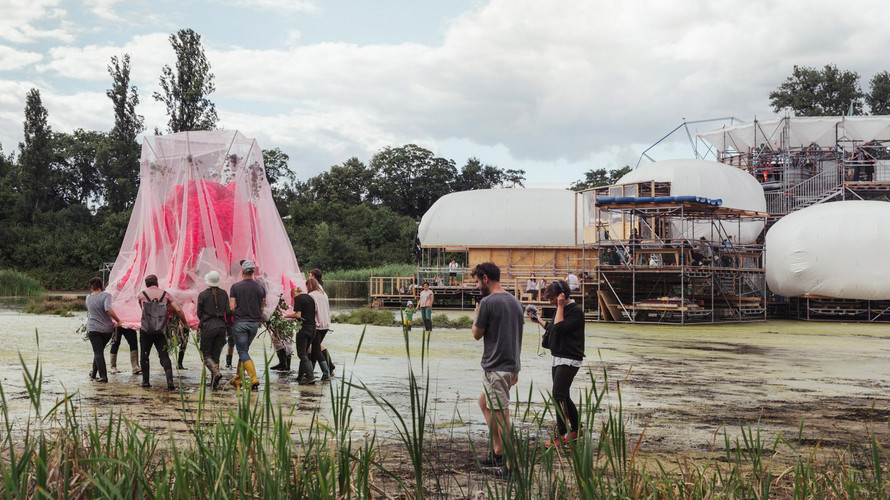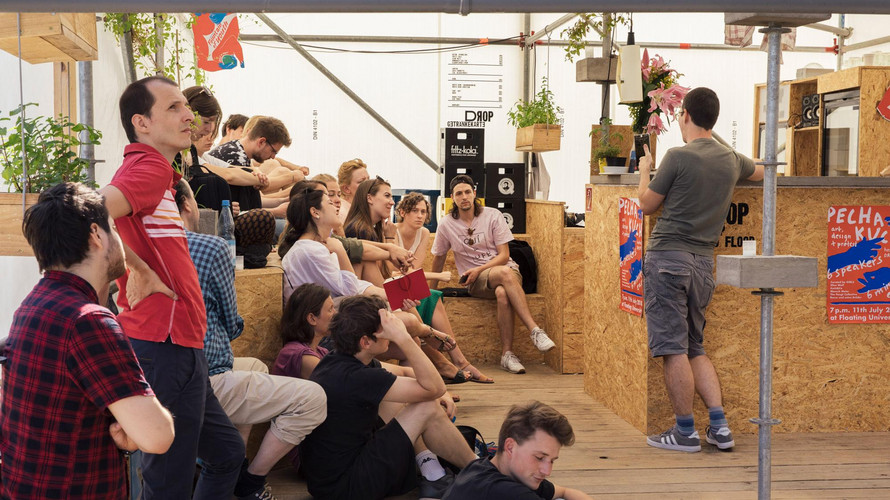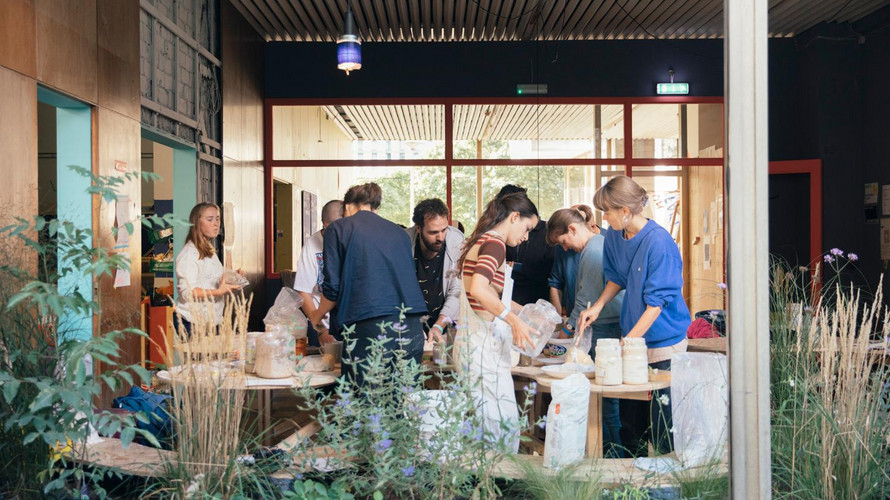studio space production 21 | 02: Spaces of Learning. The non-institutional school in rural area
Expansion of Stechlin Institut, Brandenburg
Learning and the creative shaping of one's own environment mainly take place in non-institutional spaces, especially in the current times of uncertainty and unpredictability. The various participants bring in diverse expertise from their own practice and actively question the institutionally existing duality between teachers and students. In these spaces, knowledge is generated without administrative structures and hierarchical organisations, situationally and through relationships.
The Stechlin Institute (SI) in Brandenburg is such a space of learning. Currently it is located in the former Neuroofen manor house, directly in the forest near the beautiful lake Stechlin, about 80km north of Berlin. During the first so-called Corona Semester in summer 2020, we clearly noticed the enormous significance of these non-institutional places. In this state of emergency, marked by uncertainty and unpredictability, we found support precisely there, where people react much more flexibly and resiliently to the current transformation. Rural areas in particular play a key role in today's time of transformation. There, urgent topics such as the climate crisis and sufficiency are being actively confronted and tested. Since 2015, the Stechlin Institute has been an open place for experimentation, sufficient living, solidarity-based cooperation and knowledge transfer. This year, the SI is experiencing a structural upgrade of the existing building, and the need for an expansion in terms of space and content is becoming clear.
The aim of the project is to support this process of possible expansion and to reflect on it. At the same time, we will question processes of institutional learning in the university environment and create a transfer between the SI and the UdK Berlin. Furthermore during the semester we will explore the design of a possible expansion of the existing building. Nearby in Neuroofen, on a 9000m2 plot a laboratory of sufficiency with workshops and further accommodation possibilities should be developed.
What characterises the non-institutional spaces of learning? How programmatic development and aesthetic design can function as a support structure for learning? How does one deal with the spatial, social and cultural stock in Neuroofen and with which materials in interaction with existing nature is sufficiency spatially manifested?
The first part of the project deals with the critical reflection of the topic and includes drawings of real situations in one's own environment as well as mapping of relevant readings. The second part focuses on Stechlin and the analysis of the place, aiming first concept for the expansion. This phase ends with an intensive week on site at the Stechlin Institute. The process end in a design phase for the future extension, where what has been learned on site is reflected upon and results in a non-linear design beyond the binary problem/solution.
The studio is open for master students and third and forth year bachelor. After a whole year of digital communication, we all long for real encounters and spatial experiences, yet as it stands for now, the studio is based mainly on online communication. Digital infrastructures will shape the way we produce space, but not replace the analogue engagement with materials and real places. We welcome experimental and critical project ideas that deal with real urban issues and situations. The planned working methods will be discussed and agreed on regarding the resources of the participants. Everyone involved in the studio will be actively shaping the term “distance” and the way we work and communicate together as a group and not as disconnected individuals. Above all the studio offers an environment to connect and collectively set new frames of architectural education in times of uncertainty. An important component of the studio is an intensive week (11.6.-19.6.), which takes place on site at Stechlin Institute - if possible and under covid19 restrictions. The presence of the participants in Berlin is required.
>> Application via moodle on Monday 12.04. until 16h
>> TN max. 12
>> Wednesdays online & offline, first meeting Wednesday 14.04. 11h
Questions? raumproduktion@raumlabor.net
